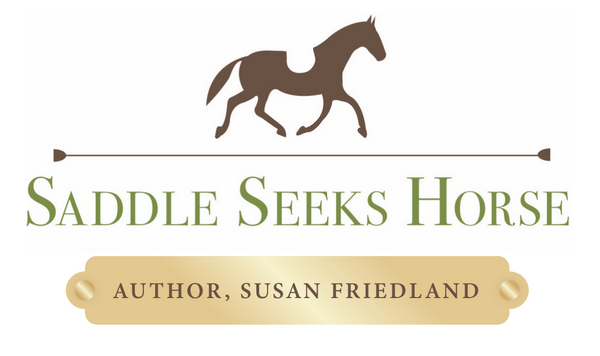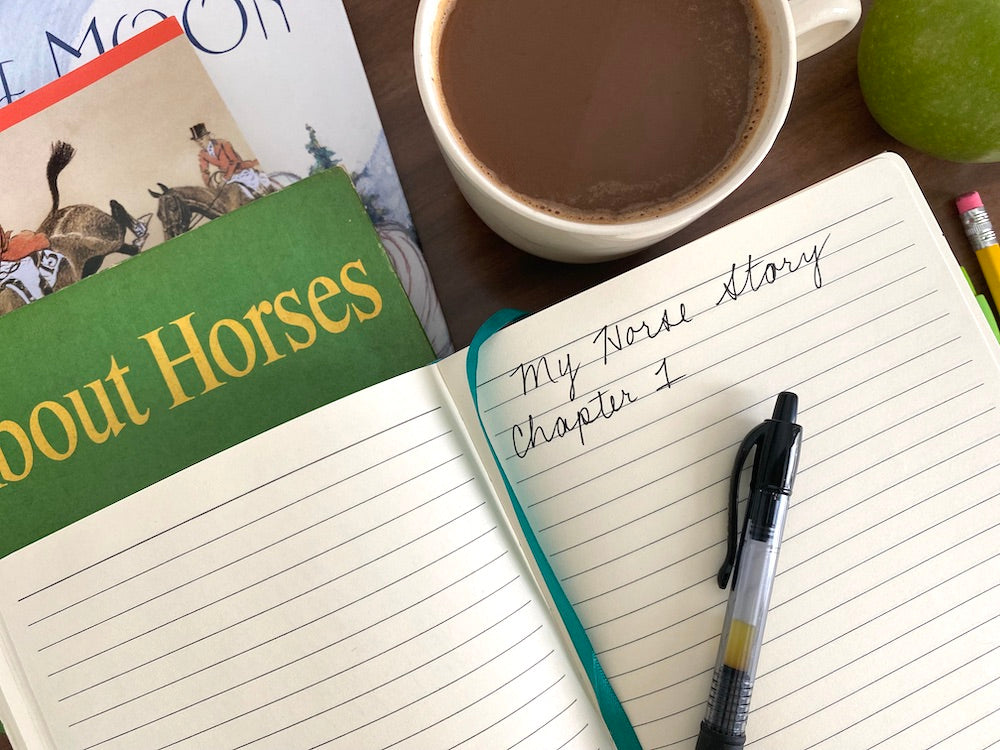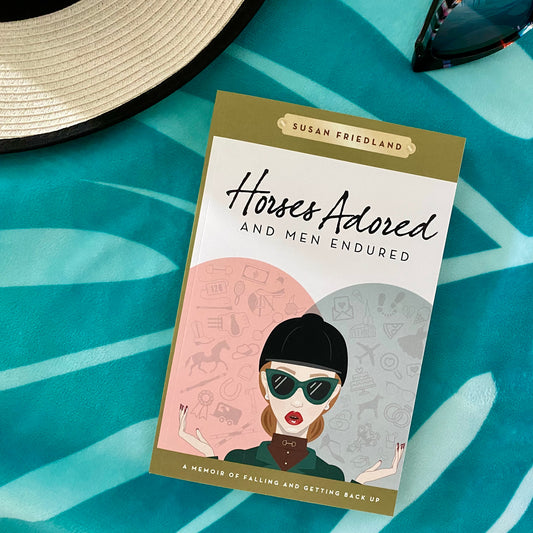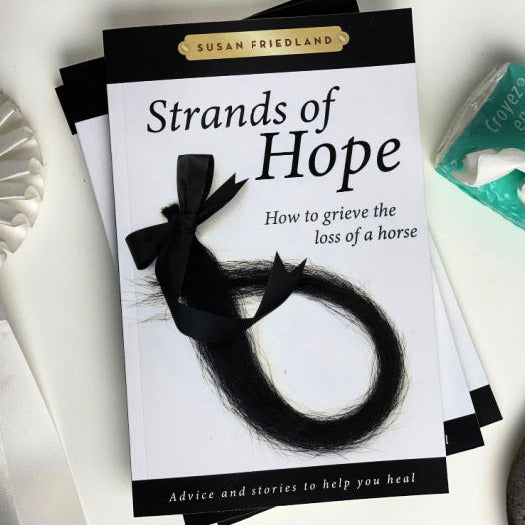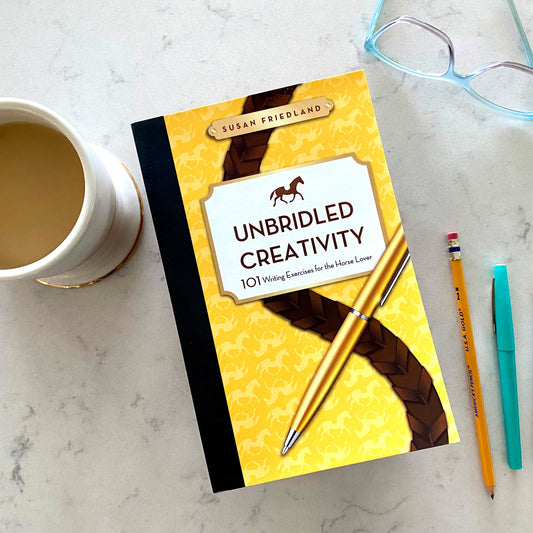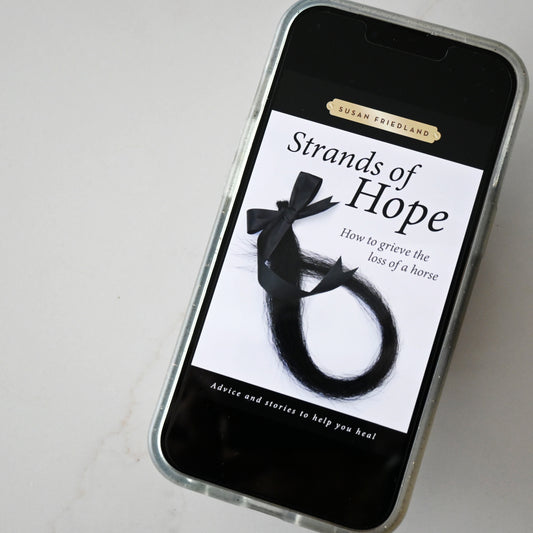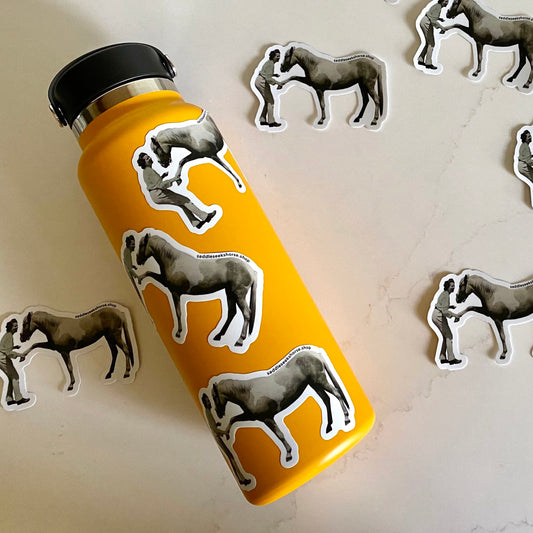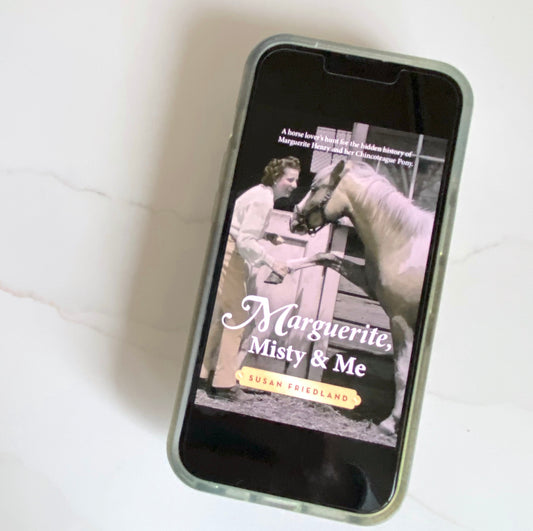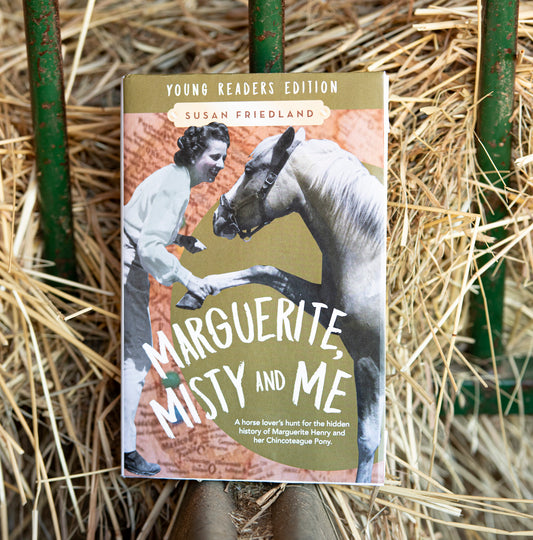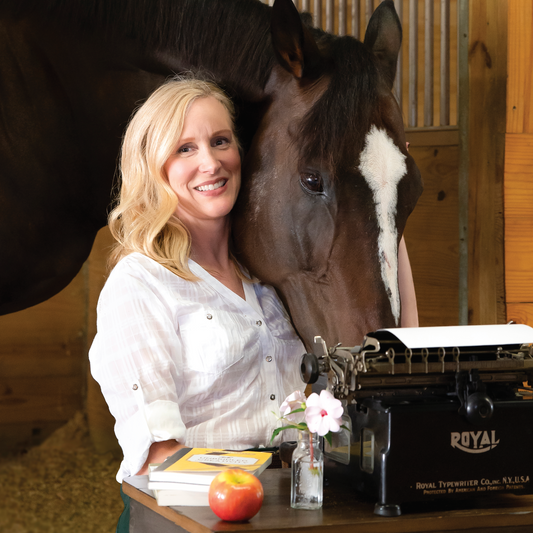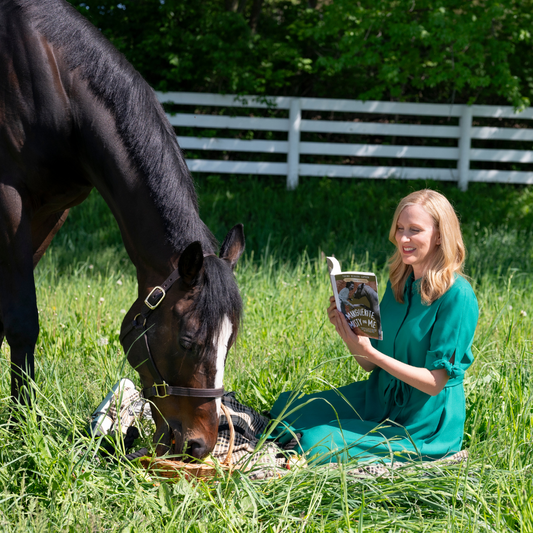Are you an aspiring author looking to delve into the world of horse books? Writing your first horse book (or any book really) requires creativity, research, passion and perseverance. Before you saddle up for the ride of your soon-to-be author life, here are seven actionable steps to get you started. (This list is not exhaustive, but a roundup of priorities to think about as you plunge into the world of horse books.)
1. Ponder Your Passions
If you know you want to write a horse book but aren't sure where to start, think about what interests you most about horses.
- Are you fascinated by equine behavior?
- Are you a devotee of a particular discipline or training methodology?
- Do you have a real-life horse story the world needs to hear about?
- Does creating a world of fictional characters who live, ride and learn about horses appeal to you the most?
You HAVE to write a book that interests you and is something you would want to read yourself. Whatever that story is inside of you, there are others out in the world who need your unique story.
2. Narrow Down the Topic for Your First Horse Book
If you have many horse book ideas swirling in your head, don't overthink it. Begin with the one story that keeps nudging you to be put into the world. For me, that story was a series of zany dating misadventures from my teens to early 30s. Paired with those awkward dating stories were stories of horses I loved and my very backyardy horse world "upbringing." The book became my debut equestrian memoir Horses Adored and Men Endured: a Memoir of Falling and Getting Back Up.
It was not a chore for me to write vignettes from the past because, in hindsight, my embarrassing horse show experiences and lame online dates were funny. I shared a few of my early essays with fellow students in a writing class I participated in back in 2008, and even though they were not horse people, they giggled and were interested.
Pro Tip: Choose a topic that makes you smile or brings you joy and start with that.
Embedded within this idea of narrowing down the topic is determining what genre your book will fall into. At the most simplistic level, you need to know if you're writing fiction or nonfiction. Beyond that, you have to decide the sub-genre. Are you writing a how-to book? Biography or memoir? Something else? Those aforementioned categories are all in the nonfiction realm.
If you opt for fiction, are you writing children's novels about horses? Cozy mystery? Equestrian romance? Be sure you are laser-focused on genre.
I can help you write your horse book! The next round of Aspiring Author Jumpstart, my online course for riding writers, starts September 26 via Zoom.
CLICK HERE for more info.
3. Locate (and Emulate) a Book You Enjoyed Reading
It's helpful to think of a book that is similar to what you would like to write. For example, with my recent book Marguerite, Misty and Me, I knew I wanted to discover and share the backstory of my favorite horse book author Marguerite Henry. I started researching, and along the way I thought about the book Julie and Julia.
I loved Julie Powell's memoir even though there was nary a horse to be found. What appealed to me was that it was as though Julie had a relationship with Julia, despite the fact they never met. Both women's stories were intertwined--fangirl and icon. In the same way, I am a Marguerite Henry fangirl and I wrote about the horse book icon.
Note: this is not about copying, plagiarizing or being unoriginal. It's about using another story as a role model or template. You can learn all about this in my online writer's course, Aspiring Author Jumpstart. In Module 2 we dig into preparing to publish and how to set yourself up for first-time author success.
4. Got Plot?
To keep your readers happy and interested, you've got to capture their attention from the first page and keep them hooked to the last page. I once heard Jerry Jenkins, a bestselling author in the Christian publishing space, say something to the effect that from the beginning you have to put your character in a crisis-type situation (he worded it much better). There needs to be some kind of action or problem apparent to the reader early on. If there's no conflict, there's no story.
The opening scene in my equestrian memoir Horses Adored and Men Endured occurs as I open the door of my Los Angeles starter apartment to a blind date. He is wearing an orange leather jacket (like the kind J.J. Walker of the TV show Good Times might wear only this was not the 1970s), and crosses into my living room complimenting me on my sconces. Yes, the sconces on my wall.
(He complimented my sconces, not me personally. And later he was stopped by the LAPD because his license was suspended, he had expired tags and he did not have auto insurance. Still makes me shake my head. Read the rest of my dating mayhem in Horses Adored. But I digress.)
In order to make your horse book unforgettable you've got to win over the reader from the beginning so they want to "follow" along. Whether that's going on a series of really terrible dates or enjoying your how-to path or getting swept away in a sweet romance.
5. Unleash (But Don't Overdo) Description
Paint vivid pictures with your words to transport readers to the world of horses. Describe the sights, sounds, and smells of the stable, the thundering hooves of a galloping horse, and the bond between rider and steed. Engage all the senses, but don't go over the top! Nothing stops a reader in her tracks more than too much description. For example:
"The towering,18 hand Clydesdale with a wide blaze, nutmeg coat and ebony tresses pranced perkily, his feathers flowing in the wind like marsh grass, waving to and fro, as he reunited dramatically with the charcoal gray stable goat that was joyfully cavorting up and down from the dark oak table top located in the middle of the five-acre pasture flanked by white wooden fences."
How could you say that more succinctly? Maybe something like this:
"The towering Clydesdale pranced, his mane and feathers flowing like marsh grass, as he trotted over to greet his pasture pal, Morris, the stable goat. The unlikely pair cavorted and sped in circles, zigzagging across their lush pasture."
That second goat and Clydesdale excerpt could still use improvement, but it's not as much of a chore to read.
Sometimes less is more--as in the case of applying makeup to one's face and description. Readers like envisioning scenes in their mind. Give them just enough description for that mini movie to play in their heads, but not so much that there's nothing left to their imagination or it's a challenge to get through the long-winded storytelling.
Pro Tip: Please don't pepper your manuscript with whinnies and squeals and teens who know nothing about horses taming wild Mustangs. lol
6. Edit and Revise Diligently
Editing is a crucial step in the writing process. Even if you were once an English teacher (raising my hand over here) or you have published scores of magazine articles (still raising my hand), you NEED to work with an editor. Your mom or sister or a friend who is or was an English teacher don't count. You must work with a professional editor or two.
For my first three books I had one editor who helped with grammar, punctuation, and consistency. For Marguerite, Misty and Me, my most ambitious book, I worked with a developmental editor and a line editor.
The developmental editor is a big picture expert. Here's a sampling of feedback I received from my developmental editor:
- move XYZ chapter to the front of the book
- delete this whole section--too detailed and doesn't contribute to the overall story flow (I repurposed some of those scenes into blog posts such as this one about Marguerite Henry's Wisconsin roots.
- end your book with you writing a letter to Marguerite Henry (I don't think I would have thought of that on my own! Thank you, Editor Emily!)
In addition to your editors, seek feedback from beta readers to refine your horse book further. Whether you are hoping to self-publish your horse book or land a deal with a traditional publisher, I can help you find an editor to get you on the right track and groom your story until it shines like a show pony! Feel free to reach out at Susan at saddleseekshorse dot com. Or you can sign up for the next round of Aspiring Author Jumpstart.
7. Find Your Author Community
In order to write and publish a horse book, you need a community. I would never have been able to get my first book out into the world without the support of my author friend Carly Kade, and both my editor and my cover designer.
Carly was my first author friend. Here's what's crazy: it's hard to make author friends before you are an author yourself. But the moment I had a book out in the world, doors opened for me to start connecting with other authors. As the years have passed and I've now written five books, I continue to meet more and more authors.
One way to gain an instant author community is to join Aspiring Author Jumpstart, my online class for first-time authors. It's a six-week live training course conducted via Zoom. I'm not the only teacher--there will be guest author live Q & A's. Because the course is limited to 15 students, it's a small group environment and extremely interactive. We'd love to have you!
Conclusion
Writing a horse book is a labor of love that requires dedication and perseverance. Embrace the ups and downs of the creative process, and stay true to your vision. Remember, the journey of writing can be just as rewarding as the finished product. You might struggle with Imposter Syndrome (totally normal) or get confused by the world of publishing--how to figure out which path, traditional or indie/self-publishing is best for you. Don't give up! Just remember, Rome wasn't built in a day. (I said that to myself over and over during the two and half years I was working on Marguerite, Misty and Me.)
By following these seven steps and pouring your heart into your writing, you can create a horse book that captivates readers and celebrates the beauty of these majestic creatures. Happy writing!
If you'd like to join Aspiring Author Jumpstart which starts up September 26, 2024, use code NEWAUTHOR to get 10% off. CLICK HERE to make your author dreams a reality.
